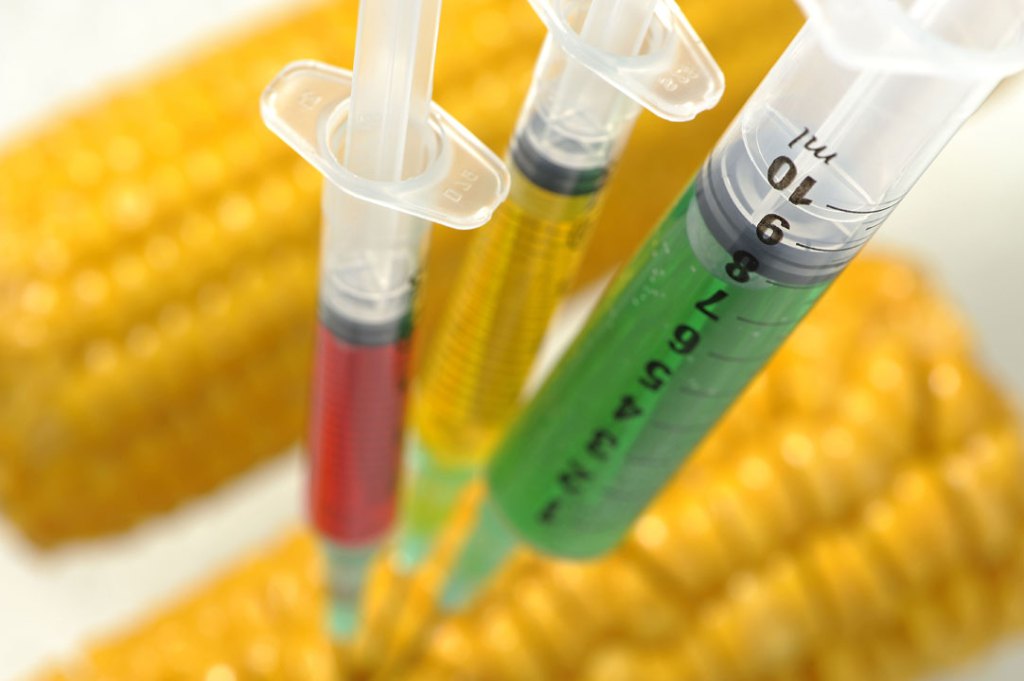Vermont lawmakers have passed a law making it mandatory for food made with genetically modified organisms (GMO’s) to be labelled – the first law of its kind in the United States.

The bill would require any foods containing GMOs to be labelled as such, also making it illegal to call any food that contains GMO ingredients “natural.” Once approved the law is expected to take effect July 1, 2016.
The bill was passed Wednesday by a vote of 114-30 and will be sent to Gov. Peter Shumlin for approval.
“I am proud of Vermont for being the first state in the nation to ensure that Vermonters will know what is in their food,” said Shumlin.
‘Genetically modified’ is a term to describe foods created by merging DNA from different species. Currently, there is no law in Canada that requires the labelling of genetically modified foods.
Lucy Sharratt, of the Canadian Biotechnology Action Network (CBAN) believes the government may be ignoring the wants of the majority of Canadians. “Consistent polling shows that over 80 per cent of Canadians want labelling to provide a choice in the grocery store.”
Health Canada lists over 81 genetically engineered foods safe for Canadian consumption. But safety isn’t the only concern says Sharratt. She believes it’s about consumer choice.
“The food industry is very concerned that if consumers have a choice they won’t choose genetically modified foods.”
- Posters promoting ‘Steal From Loblaws Day’ are circulating. How did we get here?
- Video shows Ontario police sharing Trudeau’s location with protester, investigation launched
- Canadian food banks are on the brink: ‘This is not a sustainable situation’
- Solar eclipse eye damage: More than 160 cases reported in Ontario, Quebec
But Nadine Sisk from Croplife Canada wholeheartedly believes in the benefits of GMOs. “Genetically modified plants are good for the environment, and they are good for improving the amount and quality of food that is available, which means that food is more affordable.”
And for those with concerns about the safety of genetically modified foods, Sisk advises people to do research.
“When people raise concerns about it I think in many cases they haven’t explored the benefits, and are unaware of how much research goes into these technologies before they are approved. It takes well over a decade of research before a single crop is approved.”
Some of the most popular genetically engineered foods include a variety of corn, soya, and canola. Corn is a key ingredient in food items like cereal, peanut butter, and yogurt.
Food manufacturers say around 70-80 per cent of packaged food in a typical grocery store would need to be labelled.
In Vermont, lawmakers are also anticipating some push back from big food manufacturers and the biotech industry. A fund of up to $1.5 million dollars has been established to help fight any future lawsuits from the food industry.
“It’s very clear that in Canada and the U.S. the biotechnology industry has fought the establishment for mandatory labelling. They have thrown excessive amounts of money to stop mandatory labelling from happening in Canada,” says Sharratt.
Labelling is required in 64 countries, including the European Union.




Comments